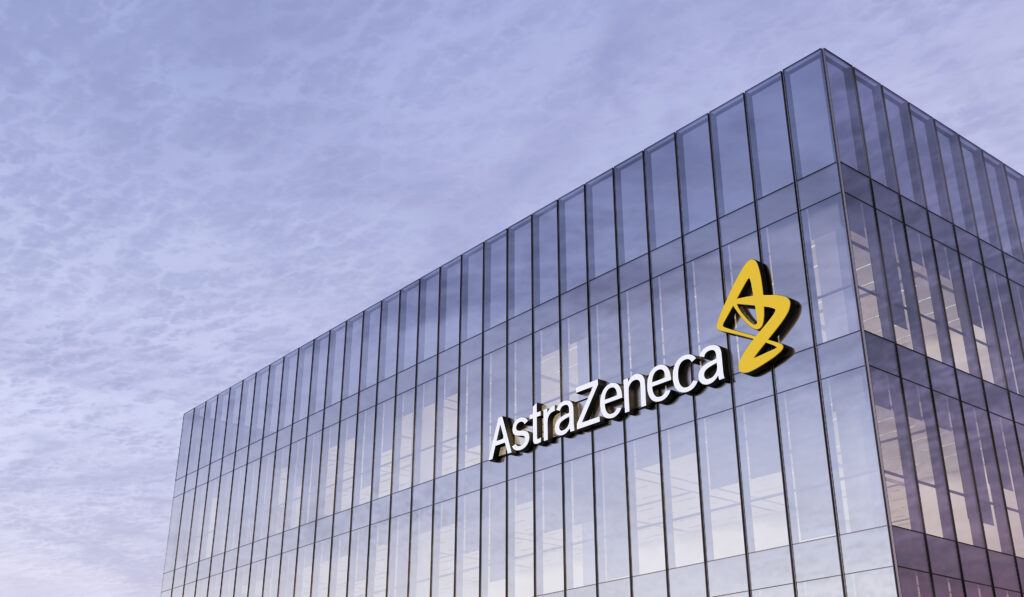The US Food and Drug Administration (FDA) has given the nod to AstraZeneca’s Voydeya (danicopan) as an add-on therapy to the company’s standard-of-care C5 inhibitors Ultomiris (ravulizumab) or Soliris (eculizumab) for the treatment of extravascular hemolysis (EVH) in adults with the rare blood disease paroxysmal nocturnal hemoglobinuria (PNH).
PNH is characterized by the destruction of red blood cells (RBCs) within blood vessels (known as intravascular hemolysis, or IVH) and white blood cell (WBC) and platelet activation, which may lead to blood clots (thrombosis).
Approximately ten to 20 percent of patients with PNH may develop extravascular hemolysis (EVH), a condition that causes RBC destruction outside of blood vessels. The complication occurs in these patients after the use of C5 inhibitors because C5 inhibition enables RBCs to survive and circulate. The RBCs in circulation are marked by proteins in the complement system for removal by the spleen and liver.
Voydeya is the first-in-class, oral, factor D inhibitor developed specifically as an add-on to ravulizumab or eculizumab for patients who develop EVH.
XTALKS WEBINAR: Reimagining the Translation from Biologics Discovery to Development
Live and On-Demand: Tuesday, May 7, 2024, at 11am EDT (4pm BST/UK)
Register for this free webinar to gain insights into the most effective tools, technologies and strategies for biologics discovery and development.
Soliris and Ultomiris are billion-dollar blockbusters for AstraZeneca. While Soliris had its market launch 17 years ago with $3.2 billion in sales in 2023, Ultomiris was approved in 2018 and generated $3 billion in revenue last year.
Competitors in the PNH market include Novartis, which won approval for its factor B inhibitor Fabhalta (iptacopan), the first oral pill for PNH treatment, late last year. While AstraZeneca’s Voydeya approval is its oral answer to Fabhalta, the latter has a competitive advantage over the company’s C5 inhibitors as it targets upstream of the C5 pathway.
AstraZeneca acquired danicopan via its mammoth $39 billion buyout of Alexion Pharmaceuticals completed in 2021. Alexion is now a group within AstraZeneca focused on rare diseases. And Alexion had acquired danicopan through its 2019 purchase of Achillion Pharmaceuticals for almost $1 billion.
Related: Novartis’ Fabhalta Gets FDA Approval for Rare Complement Blood Disorder
The FDA’s green light for Voydeya comes three months after the Japanese Ministry of Health, Labour and Welfare (JHLW) became the first regulator in the world to back the therapy.
Voydeya’s FDA approval was based on positive results from the pivotal ALPHA Phase III trial.
Results of the trial showed that at Week 12, danicopan plus ravulizumab or eculizumab led to a significant increase in hemoglobin levels from baseline compared to placebo plus ravulizumab or eculizumab.
Absolute reticulocyte count levels also remained up through 48 weeks. Moreover, after 12 weeks, 83 percent of patients did not require a blood transfusion, which was sustained through to 24 weeks among 78 percent of patients.
Voydeya was generally well tolerated, and no new safety concerns were reported. In the trial, the most common adverse events were headache, nausea, arthralgia (joint stiffness) and diarrhea.
Results from the 12-week primary evaluation period of the trial were published in The Lancet Haematology.
In addition to Novo’s Fabhalta, Appelis’ C3 inhibitor Empaveli (pegcetacoplan) is another new rival. In 2023, its second year on the market, the drug earned $91 million in sales.
According to Jefferies analyst Peter Welford, Voydeya’s peak annual worldwide sales in PNH could hit $759 million.
Through its Alexion deal, AstraZeneca is looking to expand into other rare diseases, including various forms of amyloidosis for which it has secured licensing deals and buyouts. AstraZeneca is also venturing into cell therapy and genetic medicine.
Additionally, AstraZeneca is currently assessing the efficacy of the drug for the treatment of the eye disease geographic atrophy in an ongoing Phase II trial.
If you want your company to be featured on Xtalks.com, please email [email protected].












Join or login to leave a comment
JOIN LOGIN